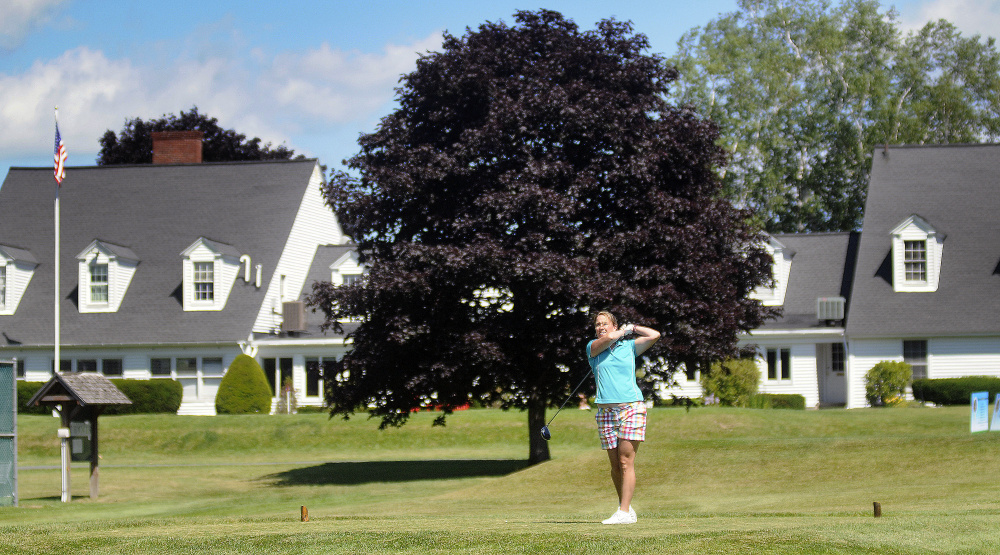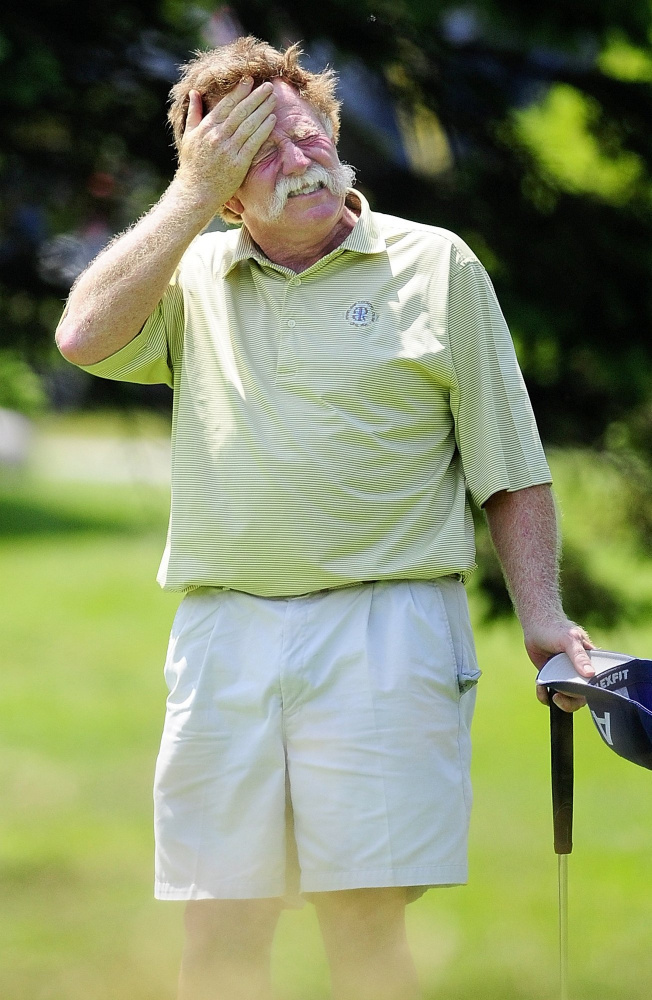There have been thousands of competitive rounds and matches played at the Augusta Country Club since it opened as the Augusta Golf club in 1916. Former U.S. Open champion and World Golf Hall of Fame member Francis Ouimet played a match there in 1918 with the local pro and a couple of amateurs.
Professionals and celebrities flocked to the course in the 1920s and ’30s when the world was a more intimate place and the sport was still in its relative infancy. While many courses have since gone to seed, Augusta has flourished with an impressive array of tournament play that often involved its own club members.
Monday and Tuesday it will host the Charlie’s Maine Open for the fifth straight year and 14th time overall. Augusta was among eight original golf clubs that formed the Maine State Golf Association in 1917 and has been at the forefront in hosting tournaments since.
The club, located in Manchester, hosted the first Maine Amateur in 1918 and the tournament has been played there 16 times since. Club members, led by Mark Plummer, have accounted for at least 19 Amateur titles. Plummer, who will play in this year’s Maine Open, has won 13 of those titles followed by Ryan Gay with three, and Joe Williamson, Bob Mathews and Bob Webber with one apiece.
“Success breeds success,” said Pete Hatfield, who began at Augusta in 1969 and still supplies instruction there in his retirement.
Plummer said Hatfield and former pro Al Biondi had a lot to do with the success of club members.
“I think having Pete out there has helped everybody,” he said. “Al got me started.”
BIG NAMES COME TO PLAY
Competitive golf involving club members hit its apex when Plummer took Tiger Woods to the 18th hole in the semifinals of the 1995 U.S. Amateur tournament. But it began shortly after the club’s inception when Ouimet played club pro Frank Gilman along with members Williams Williamson and Lawrence Hill in an exhibition match.
Ouimet shot three-over par 73 that day, according to club member Mark Laney, who has put in dozens of hours researching the club’s history. Ouimet suggested the fourth green be moved back to create a par 5 and, indeed, it was later moved back 60 yards. Ouimet returned to Augusta in 1932 after the course expanded to 18 holes and the remodeled green was dedicated in his honor.
When it was still nine holes in 1929, pros Walter Hagen and Horton Smith played a match against Gilman and Portland Country Club pro Alex Chisholm, beating them 3 and 2.
Hagen would go on to win 45 professional tournaments, including 11 majors, while Smith won the first Masters tournament at Augusta, Georgia in 1934. The two Augusta courses have a quirky history of sorts. Hatfield recalls entertaining three Japanese couples who were routed from LaGuardia Airport in New York to Maine in what they thought was the home of the Masters. Hatfield said he and general manager Al Biondi started getting suspicious when “they bought out the pro shop, hats, shirts, everything.”
When the confusion was ironed out, Biondi offered the couples dinner and free rounds of golf to assuage their embarrassment. Years later, Hatfield got a call one Saturday morning in April from a man in England who wanted to know “who is leading the tournament” presumably in reference to the Masters.
“I thought he was talking about our regular Saturday tournament,” Hatfield said. “And I told him, Mark Plummer. He said “who the hell is Mark Plummer?”
Professional and celebrities visited the course from time to time. Legendary pro Gene Sarazen played a couple of times, most recently with Hatfield, while Billy Andrade lost a junior tournament at Augusta and PGA champion Bob Rosburg played many rounds there while summering in Mount Vernon. Bob Hope, Willie Nelson, former Red Sox catcher Bob Montgomery and pro wrestlers — including Chief Jay Strongbow — also teed it up at Augusta, as did Patty Berg, a founding member of the LPGA Tour and winner of 15 majors.
PLUMMER MAKES MARK
Plummer hit his stride in the 1970s, winning the first of 36 club championships in 1970 when he beat his father, Stan. His dad shot his age many times, but Mark, 64, has yet to get there, although he shot rounds of 65 twice this year. He did set the course record of 60 on Sept. 4, 1993.
Plummer first won a Maine Amateur on his home course when he beat Ricky Jones in a playoff in 1994. He won again in 2001 when the tournament briefly returned to match play, this time topping Corey Poulin in playoffs after being three down in regulation with three holes to play.
Some of Plummer’s more memorable matches at Augusta didn’t involve amateur titles at all. In the late 1980s a team comprised of Hatfield and three amateurs — Plummer, Brett Porath and Webber — trailed Bangor by four strokes in best ball play with three holes left to play in the state Pro-Am championship.
With the Bangor team already finished, Hatfield birdied the 16th to cut the deficit to three strokes. Then came a long rain delay.
“When we went back out I bet 50 or 60 club members came out with us,” Hatfield said.
They were rewarded as Porath aced the 17th hole to cut Bangor’s lead to one leading to the par 5 18th.
“I figured we were in pretty good shape because Mark could reach the 18th in two, and if we birdied it would force a playoff,” Hatfield said. Plummer’s second shot went to the side of the green in the rough and as he recalls “I holed out a wedge to win it.”
MASTERING THE COURSE
The course, which measures under 6,200 from the tips, is relatively defenseless against today’s pros and equipment.
“If we had time to get the greens hard and fast, it holds up,” Plummer said. “But we don’t and it wouldn’t be good for the members. If we wanted to we could make it so guys couldn’t shoot 63 or 62.”
Fast greens, in general, have been a hallmark since the course opened, Laney said. Trees have changed the nature of the shots but the layup has remained constant since it expanded to 18 holes.
“The golf course is really fantastic,” Hatfield said. “It’s a type of course you can play every day and never get tired of it. One of the kids who played last year (in the Maine Open) came up to me and said it’s a jewel.”
Send questions/comments to the editors.





Comments are no longer available on this story